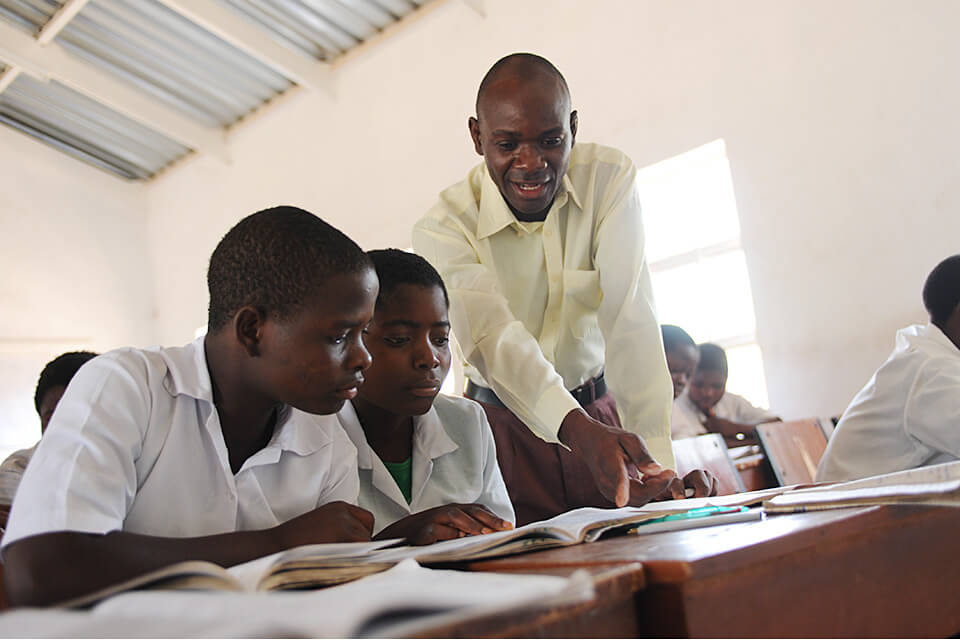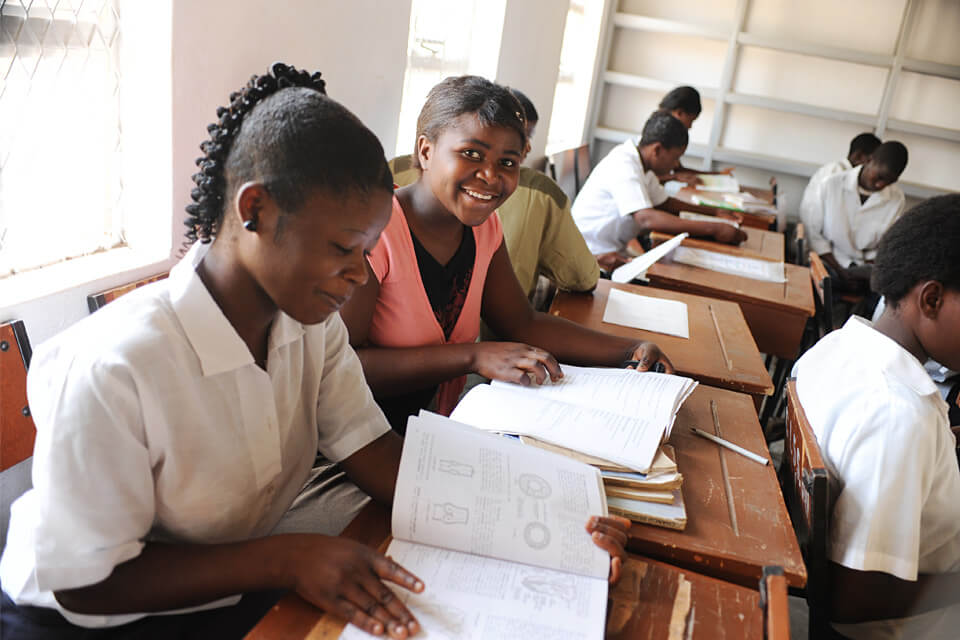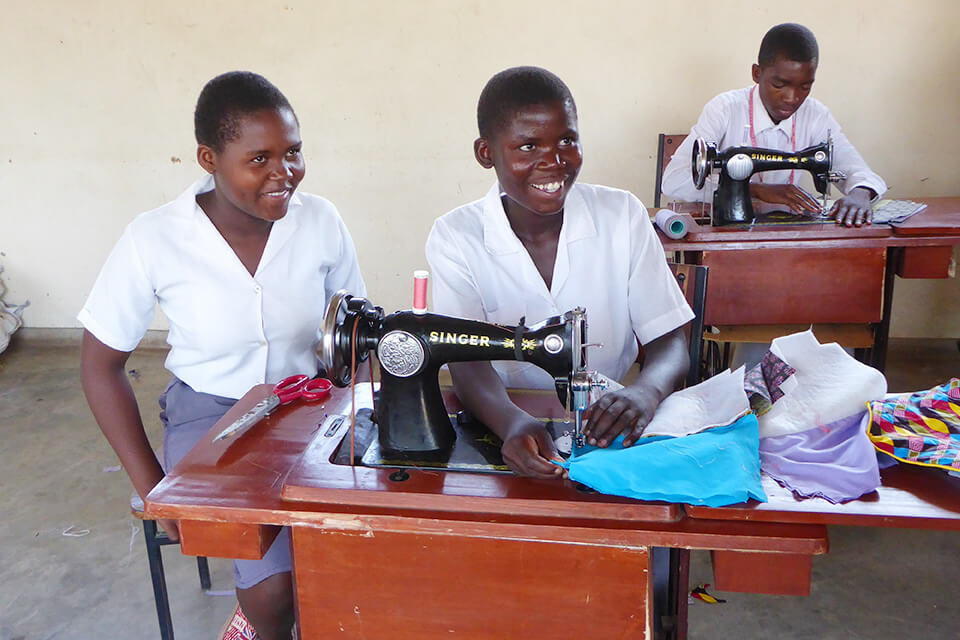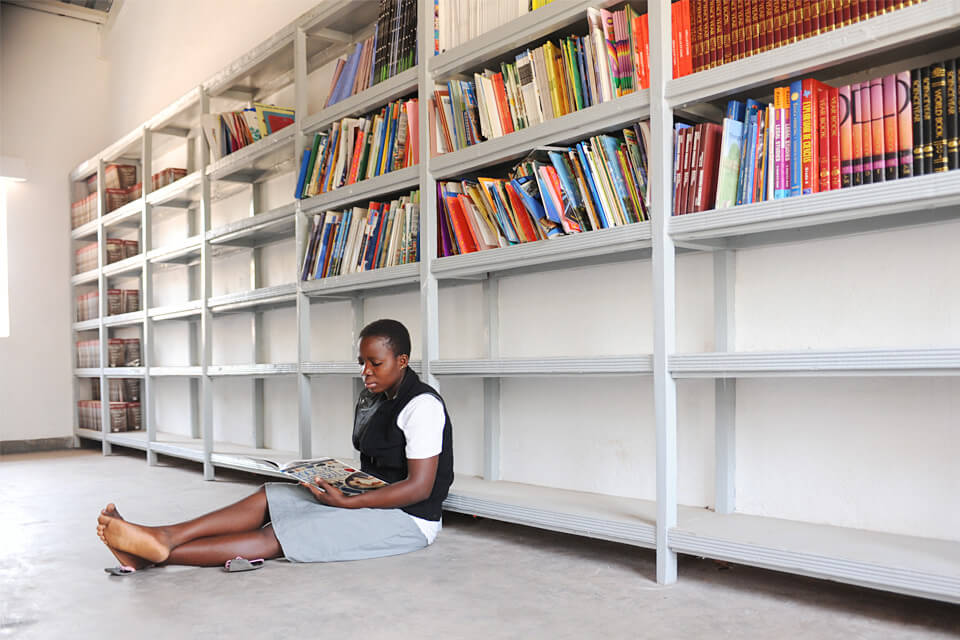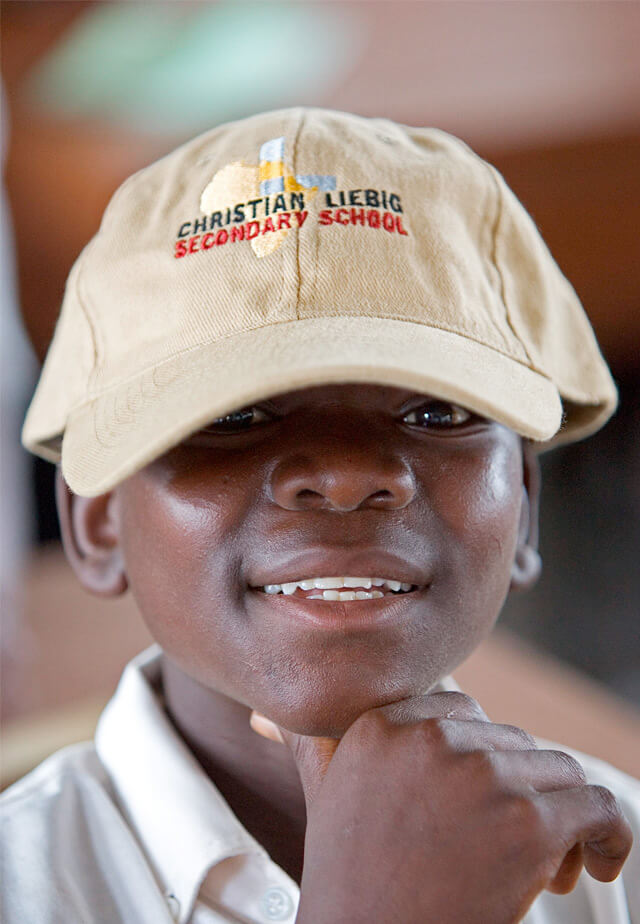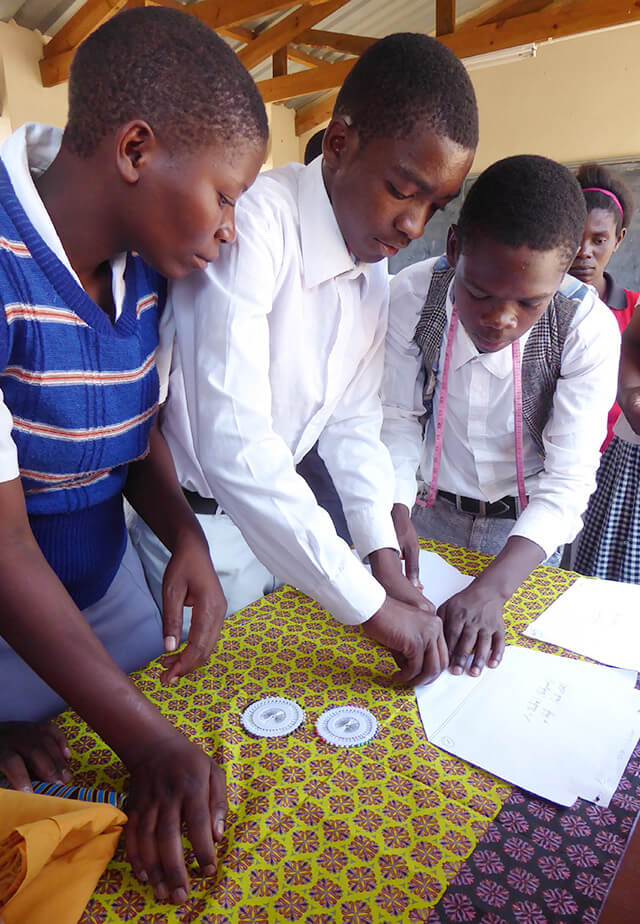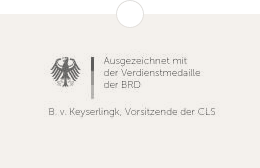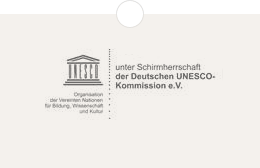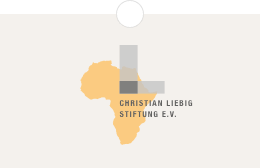The Christian Liebig Foundation’s first project: the construction of a secondary school in Malawi
On March 10, 2004, the foundation stone for the Christian Liebig Secondary School (CLSS) was laid by Mr. George Kalombola, the district administrator and a World Vision Malawi staff member, in a festive ceremony.
The school was built in cooperation with World Vision Malawi and World Vision Deutschland e.V. in the already existing regional development project Mpanda in the district Blantyre-Rural. Proceeds from the RTL Donation Marathon 2006 were used to co-finance the CLSS and to repair damage caused by a devastating storm in 2005/2006.

